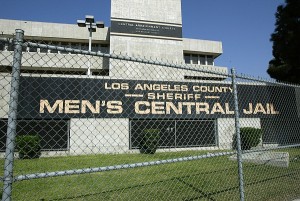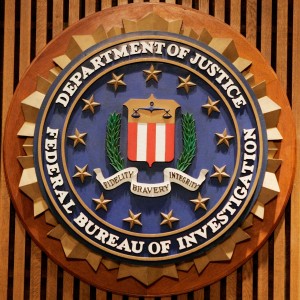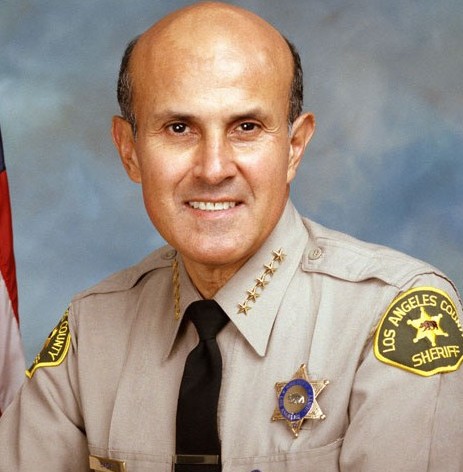Ex-deputy says then-L.A. Sheriff Lee Baca was kept informed about obstruction of FBI jail inquiry
It’s a tried and true technique of prosecutors to go after low-level criminals and turn them against their bosses.
In federal court Thursday, a onetime Los Angeles County sheriff’s deputy convicted of obstruction of justice and conspiracy took the witness stand in the case against his former top boss: retired Sheriff Lee Baca.
Through Manzo and other witnesses, prosecutors are attempting to establish that Baca was personally aware of and involved in the events of the summer of 2011, when they allege the sheriff and his subordinates conspired to obstruct federal authorities.
A lawyer for Baca told jurors this week that the evidence does not connect the former top lawman to any crimes committed by the rank-and-file deputies and pinned the blame on former Undersheriff Paul Tanaka, who has also been convicted in the case and sentenced to a five-year prison term.
Manzo recounted from the witness stand the steps he took after deputies found a cellphone on an inmate at Men’s Central Jail, who they discovered was feeding information to the civil rights squad at the FBI office in Los Angeles. Manzo testified that he was ordered by a lieutenant to interview the inmate and to record the conversation, so that the lieutenant could play the tape for “the executives.”
“Who did you understand ‘the executives’ to mean?” Assistant U.S. Atty. Brandon Fox asked.
“The sheriff and the undersheriff,” Manzo responded.

When the recording was played at a meeting the following morning, Manzo recalled Tanaka becoming enraged over the FBI’s investigation. Baca, he said, was not openly angry but did give a clear set of orders to the group of subordinates before departing. The sheriff ordered that the inmate was to be “isolated and protected” and that the group should learn “everything about the FBI investigation,” Manzo testified.
Speaking clearly and confidently, Manzo said Baca was kept in the loop as sheriff’s officials tried to interfere with the FBI.
After a sheriff’s deputy did not adhere to an order from Tanaka restricting visits to the inmate and allowed FBI agents into the jail to speak with the man, Manzo said he watched as his supervisor nervously walked into Baca’s office to alert him of the mistake.
Manzo testified that his supervisor later said Baca had not been upset by the news — a description defense attorneys indicated they will home in on when they cross-examine Manzo on Friday.
 Throughout Manzo’s testimony, Fox played audio excerpts from the many interviews sheriff’s officials conducted with the inmate informant as they tried to decipher what the FBI was investigating. While Baca was not present for the interviews and is never mentioned, Fox hopes jurors will conclude he had set the operation in motion and was guiding it.
Throughout Manzo’s testimony, Fox played audio excerpts from the many interviews sheriff’s officials conducted with the inmate informant as they tried to decipher what the FBI was investigating. While Baca was not present for the interviews and is never mentioned, Fox hopes jurors will conclude he had set the operation in motion and was guiding it.
Earlier on Thursday, jurors heard from Bob Olmsted, a retired Sheriff’s Department commander and an early whistleblower about problems with excessive force in county jails.
Olmsted, who unsuccessfully ran to replace Baca after the sheriff announced his retirement in 2014, testified that he spoke to Baca three times to alert the sheriff about “significant problems and force issues” at Men’s Central Jail in 2010 and 2011. Baca brushed him off and never gave him a chance to fully lay out his concerns, Olmsted told jurors.
“The force issues that are going on are out of control,” Olmsted said he cautioned Baca in a 10-minute meeting in the sheriff’s office. “There are going to be lawsuits like crazy.”
Under cross-examination by a defense attorney, Olmsted said Tanaka had told him of ambitions to “one day be sheriff and be sheriff for the next 15 years,” and that the undersheriff and other department brass sometimes colluded to keep Baca in the dark about goings-on in the department.


 By
By